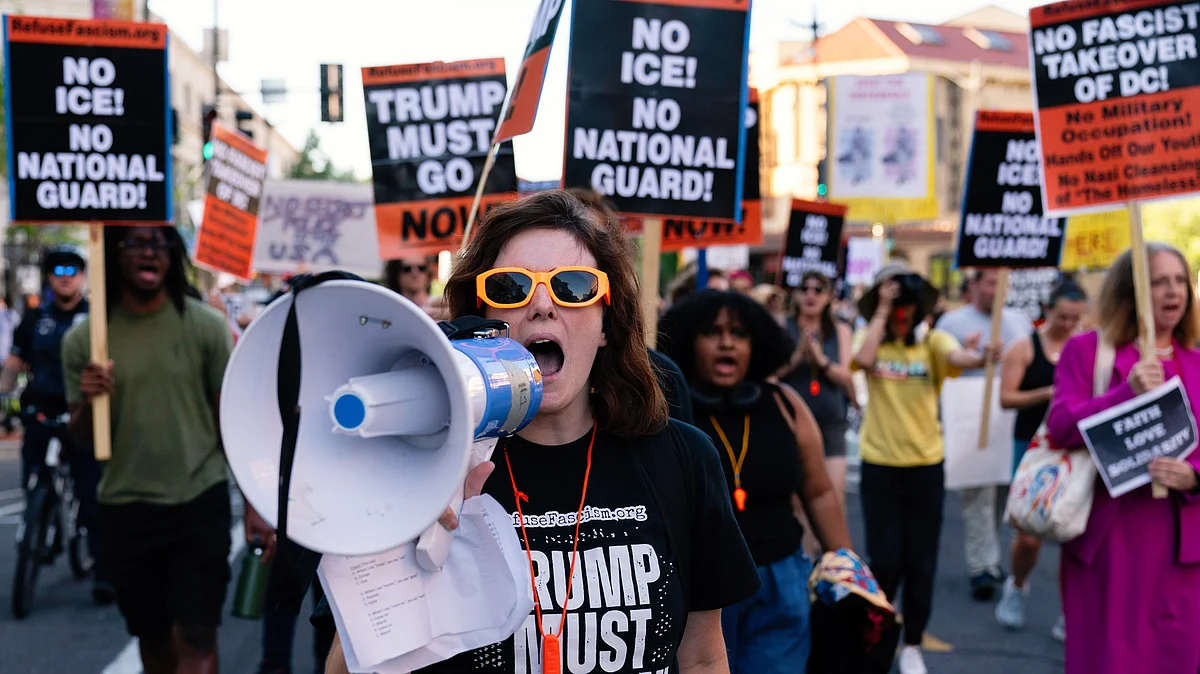World
After Washington DC, is Trump now eyeing Chicago?
Washington Post reports Pentagon working on plans for military deployment in Chicago

The Pentagon is drawing up contingency plans to send US military personnel into Chicago, Illinois at the behest of US President Donald Trump, who has once again sought to cast Democratic-run cities as lawless battlegrounds in need of federal intervention, the Washington Post reported on Saturday.
According to the report, defence officials have been working for weeks on proposals that include mobilising several thousand National Guard troops, potentially as soon as September. The plans follow Trump’s latest tirades against Chicago’s Democratic mayor Brandon Johnson, whom he derided while declaring: “Chicago is a mess. And we’ll straighten that one out probably next.”
The US defence department, in a deliberately opaque statement, declined to confirm specifics but said it “continuously works with other agency partners on plans to protect federal assets and personnel”. The White House, true to form, offered no immediate comment when news agency Reuters reached out.
Illinois governor J.B. Pritzker dismissed the idea outright, pointing out that neither the state nor the city had requested federal assistance and that no emergency justified military deployment. “Donald Trump is attempting to manufacture a crisis, politicise Americans who serve in uniform and continue abusing his power to distract from the pain he is causing working families,” Pritzker said.
Mayor Johnson likewise condemned the scheme, noting that the city has recorded a striking fall in crime over the past year — homicides down more than 30 per cent, robberies by 35 per cent, and shootings nearly 40 per cent. “The problem with the President’s approach is that it is uncoordinated, uncalled for and unsound,” he said.
Trump’s threats come against a backdrop of past, heavily politicised military deployments. Earlier this month, he pressed Republican governors from three states to send their National Guard contingents to Washington DC, claiming the US capital was engulfed in crime. The claim is flatly contradicted by justice department data showing violent crime in DC had dropped to a 30-year low.
Published: undefined
The stunt in Washington epitomised Trump’s wider pattern: dispatching troops not to respond to real crises, but to fuel his culture-war narrative. Guardsmen were flown in at great cost, only to stand idle in a city where crime rates were in fact declining. Critics, including DC’s local leadership, decried the move as nothing more than a stage-managed display designed to bolster Trump’s rhetoric about “Democrat-run cities in chaos”.
Legal experts have warned that Trump’s manoeuvres raise serious constitutional concerns. While governors can deploy the National Guard within their own states, the president’s unilateral use of them — particularly against the wishes of state authorities — risks breaching both the Posse Comitatus Act, which restricts the use of federal troops for domestic law enforcement, and long-standing norms designed to prevent the military from becoming a political tool. The Chicago plan, absent an emergency request or congressional sanction, would almost certainly trigger legal challenges.
In June, Trump infamously ordered thousands of National Guard troops and 700 Marines to Los Angeles during protests against mass immigration raids — again over the objections of California’s Democratic governor Gavin Newsom. In both instances, the deployments achieved little beyond intimidating residents, raising constitutional concerns and demonstrating the extent to which Trump was willing to bend the military into a political prop.
The Pentagon’s current deliberations over Chicago fit squarely into this pattern of disingenuous power plays. The facts on the ground show falling crime rates and no request for federal assistance, yet Trump continues to frame the city as a war zone — a familiar tactic of misrepresentation designed to justify extraordinary, and arguably unlawful, use of military force on domestic soil.
With agency inputs
Published: undefined
Follow us on: Facebook, Twitter, Google News, Instagram
Join our official telegram channel (@nationalherald) and stay updated with the latest headlines
Published: undefined